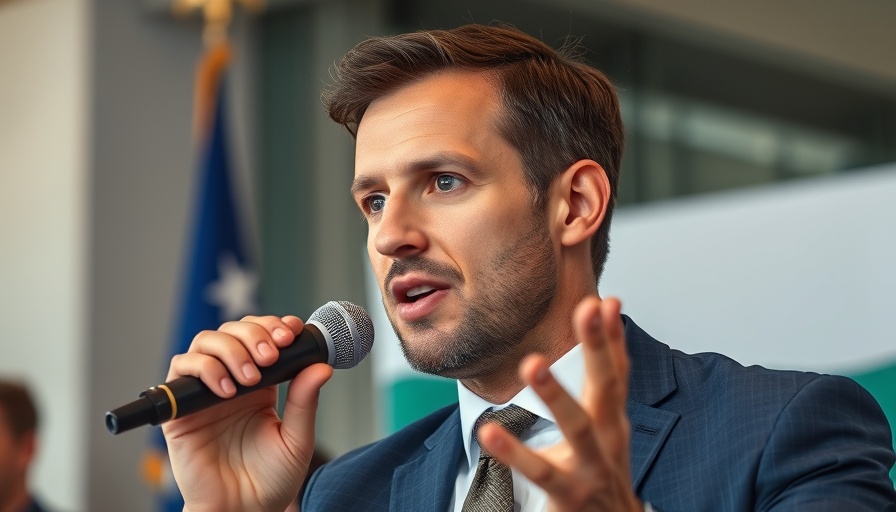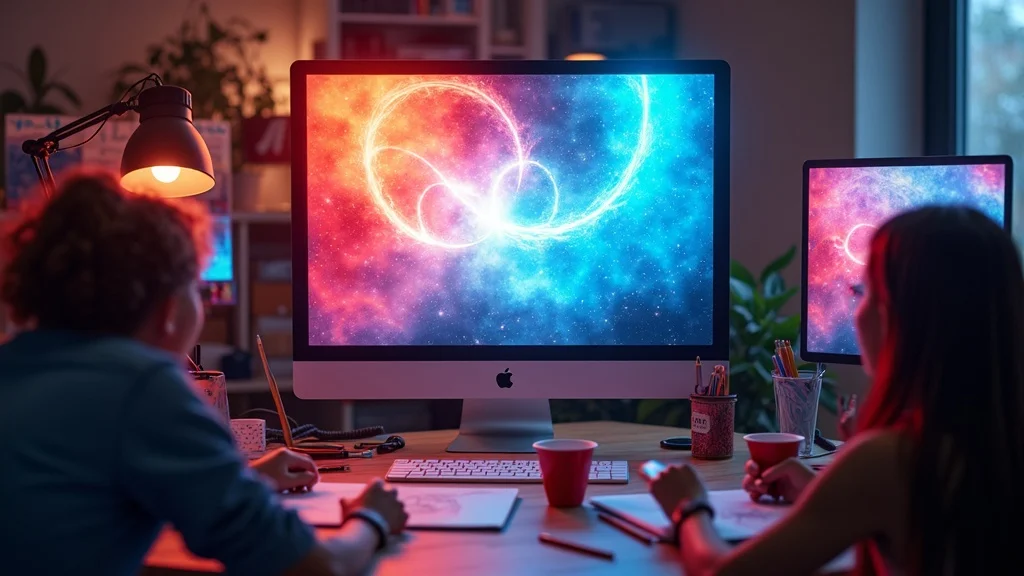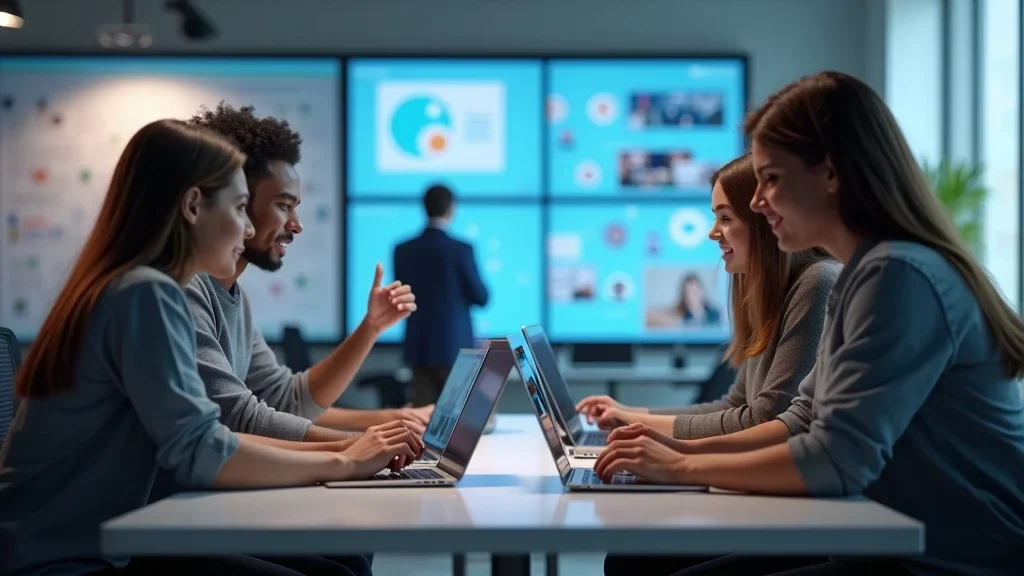Did you know businesses that adapt their strategy to each social media platform experience engagement rates rise by over 45%? That’s not just a number—it's proof that platform-specific tips truly are the secret weapon every marketer, small business owner, and marketing director needs to dominate modern media channels. This article reveals how to master every platform, connect with your unique target audience, and create engaging content that breaks through the noise with smart, practical, and clear steps.Startling Truth: The Impact of Platform-Specific Tips in Social Media Marketing"Businesses adapting their strategy to each platform see engagement rates increase by over 45%."For small business owners and marketing directors, the social media landscape is an ever-shifting battlefield. New features, algorithm updates, and viral trends seemingly appear overnight. If you still post the same specific content across your Twitter, Facebook, TikTok, and LinkedIn feeds, you might be missing out on the platform-specific engagement each media channel best delivers. Tailoring your approach for every social media platform not only elevates your brand's reach but also deepens authentic connections with your audience.In today’s fast-paced digital world, relying on generic content strategy falls flat. Each media platform plays by unique rules—what works on Instagram Stories may flop on LinkedIn, and a viral TikTok might lack impact on Facebook's feed. By embracing platform-specific tips, you can move fast, align with your target audience's expectations, and boost engagement and reach like never before. This guide will help you dive deep into the essentials—making sure your business stands out and succeeds, regardless of your marketing budget or experience level.Why Platform-Specific Tips Are Essential for Small Businesses and Marketing DirectorsAs algorithms evolve and audiences disperse across multiple platforms, understanding the nuances of each media channel has become non-negotiable. Small business owners, in particular, benefit tremendously from leveraging platform-specific tips because every dollar and post counts. Marketing directors seeking results beyond vanity metrics must recognize that a “one size fits all” mentality limits growth and mutes your company’s voice in a crowded marketplace.When you create engaging content crafted specifically for each media platform, you meet your audience where they are. This personal touch helps you establish trust, spark relevant conversations, and encourage sharing—turning followers into loyal fans. Adapting your strategy isn’t just about style, it’s about understanding data, tracking engagement and reach, and making pivots that drive business growth.While tailoring your content for each platform is crucial, integrating other direct marketing channels can further amplify your results. For example, combining your social media efforts with targeted SMS campaigns can help you reach audiences instantly and drive higher conversions—discover actionable ideas in these top strategies for growing your business with effective SMS marketing.What You’ll Learn: Key Platform-Specific Tips for Social Media SuccessUnderstand different social media platform algorithms and best practicesDiscover strategies for creating platform specific content for target audiencesMaster content timing and media channels for optimal reachGet actionable platform-specific tips for Instagram Stories, Facebook, LinkedIn, Twitter, TikTok, and moreThe Fundamentals: Platform-Specific Tips for Social Media PlatformsAdapting Content for Each Social Media PlatformMastering platform-specific content adaptation begins by knowing that every social media platform has its quirks, audience preferences, and algorithmic twists. For example, users on Instagram crave visually rich stories and video content, while LinkedIn’s audience engages deeper with professional insights, relevant keywords, and curated industry content. A successful content strategy recognizes the dynamics of each channel and customizes posts to increase engagement and reach. Start by listing out the types of content that gain traction on each platform. Instagram is ideal for high-quality visuals and behind-the-scenes posts, Facebook thrives with group discussions, video, and event promos, LinkedIn prizes thought leadership, and Twitter values brevity, trending hashtags, and real-time reactions. When you tailor your content, align it with the tone, format, and best practices of the media platform. This might mean repurposing a blog article for LinkedIn as a brief insight, transforming product updates into Instagram Stories, or capitalizing on viral trends with TikTok’s snappy video format. By consistently delivering what your target audience likes on each channel, you ensure your content resonates and stands out, no matter how saturated the platform. Focus on providing value, using relevant hashtags and keywords, and always adding a personal touch that builds lasting relationships over multiple platforms.Understanding Your Target Audience on Every Media PlatformKnowing your target audience is the bedrock of social media marketing success. The key to platform-specific tips lies in understanding that not all audiences are created equal. Each media channel attracts a distinct demographic, mood, and user intent. For instance, Instagram leans into a younger demographic drawn to visual content and influencer trends. In contrast, LinkedIn attracts professionals seeking industry insights, career opportunities, and business news.To create engaging content, start by analyzing each platform's analytics dashboard. Review not just demographics, but also which types of posts elicit shares, comments, and saves. This will help you determine what your audience likes and when they are most active. Use social listening tools to dive deep into trending conversations and viral trends relevant to your sector. Personalize your messaging, visuals, and offers by platform—and don’t be afraid to experiment. Conduct A/B tests on specific content formats and topics. Over time, these efforts lead to a content strategy so in-tune with your target audience that your brand message feels personal and authentic no matter the media platform.Platform-Specific Content Strategies: Maximizing Engagement Across Media ChannelsInstagram Stories and Visual Campaigns: Top Platform-Specific TipsUse interactive stickers, polls, and hashtags to boost engagement and reach.Post when your audience is most active and keep stories frequent but not overwhelming.Instagram Stories are a powerful playground for marketers aiming to create engaging content. Interactive stickers, polls, and branded hashtags turn passive viewers into active participants. By tapping these platform-specific features, you encourage your target audience to share their opinions, vote on products, and spread your message organically across their media channels.For optimal engagement and reach, timing and frequency matter. Post stories during your audience’s most active hours—usually during lunch and after work on weekdays. Avoid overwhelming followers; 1–3 quality stories per day have proven to keep engagement steady without causing fatigue. Finally, use high-contrast visuals, thoughtful copy, and a consistent brand palette to ensure your stories stand out on crowded feeds.Facebook: Social Media Platform-Specific Content That ResonatesBalance long-form versus short-form content according to user behavior data.Leverage video, Facebook Live, and events for richer brand experiences.On Facebook, the secret to platform-specific content lies in variety and depth. Dive deep into thoughtful, long-form posts to spark discussions in groups or among your followers. Short-form content works best for news updates or fast-moving media marketing campaigns. Video content and Facebook Live have rapidly gained traction, driving both algorithmic preference and real-time interaction with your followers.Events and group functionalities bring value to the community atmosphere Facebook cultivates. Use these tools to organize webinars, local events, or product launches tailored to the interests of your target audience. Monitor which types of content (polls, articles, infographics, etc. ) perform best on your business page, and tweak your frequency according to organic reach trends on the platform.LinkedIn: Media Platform Best Practices for Professional NetworkingOptimize thought leadership pieces and company updates with industry insights and relevant keywords.LinkedIn is the top social media platform for B2B social media marketing, job recruitment, and professional networking. Here, evergreen content packed with industry insights, company milestones, and relevant keywords drives engagement and authority. Publish regular thought leadership pieces—articles, posts, or video content—that establish your brand as a source of expertise.A successful content strategy on LinkedIn leverages the platform’s built-in credibility. Use employee spotlights, business achievements, and curated lists to strengthen your presence. Interact with peers and participate in industry groups, always responding to comments and shares to keep your profile active and top of mind.Twitter: Platform-Specific Tips for Real-Time EngagementLeverage targeted hashtags to join and drive trending conversations.Twitter moves fast, making real-time engagement essential. Platform-specific tips for this media channel include consistent use of trending hashtags, prompt replies to mentions, and participating in viral conversations. Monitor emerging topics and align your content strategy with current events or industry news for maximum visibility.Short, impactful posts built around your brand’s personality will help you create engaging and shareable moments. Consider Twitter polls, scheduled threads, and GIFs to keep your audience’s attention. Analyze which hashtags perform best and evaluate engagement metrics to fine-tune future campaigns.TikTok: Media Channel Platform-Specific Tips for ViralityCapitalize on trends, popular music, and brevity to attract a younger demographic and boost engagement.TikTok is a unique social media platform where content can move fast and go viral within hours. To optimize your platform specific content, stay on top of trending songs, effects, and challenges. Short, snappy videos (under 30 seconds) are more likely to resonate with TikTok’s younger, mobile-first audience.Don’t be afraid to add personality, humor, or education into your clips—audiences here reward authenticity. Use hashtags to tap into existing viral trends, and collaborate with creators to extend your reach across broader media channels. Frequent experimentation and leveraging real-time platform analytics will tell you what works to drive engagement and reach.YouTube: Social Media Platform-Specific Content for Video-Driven MarketingOptimize for search with SEO-driven titles, thumbnails, and end screen CTAs.YouTube demands a deliberate approach to video content. The right strategy incorporates robust search optimization—craft SEO-friendly titles, relevant tags, and clear video descriptions. Thumbnails should be visually bold and reflect the video’s main idea, while calls-to-action at the end (and in video overlays) direct viewers to subscribe or browse your channel.Consistency is critical; establish a timetable for new uploads, engage with your community in comments, and produce a mix of evergreen content (how-tos, product guides) and timely updates. Use analytics to track watch time, audience retention, and click-through rates, refining your approach as your channel grows.Comparison of Platform-Specific Tips for Social Media PlatformsPlatformBest Content TypesAudience DemographicKey Features to LeverageInstagramStories, Video, Visual postsMillennials & Gen ZInteractive stickers, Hashtags, IGTVFacebookVideo, Long/Short posts, EventsWide, 25–55+Groups, Live, MarketplaceLinkedInThought leadership, ArticlesProfessionals, B2B, ExecutivesLinkedIn Articles, Company PagesTwitterThreads, Polls, Real-time posts18–45, News seekersTrending Hashtags, MomentsTikTokShort video, ChallengesTeens & Young AdultsTrends, Music, DuetsYouTubeLong/Short video, Tutorials13–55+, HobbyistsSEO, Playlists, End ScreensAdapting Your Message: How to Deliver Specific Content On Each Media PlatformChecklist of Do’s and Don’ts for Creating Platform Specific Content:✅ Do research platform trends and audience habits before posting.✅ Do tailor images, captions, and video length by channel.✅ Do reuse ideas but refine formatting and language for each social media platform.❌ Don’t simply cross-post without adjusting for each platform’s audience.❌ Don’t ignore analytics; review platform-specific data to optimize future content.Tone and Language Choices: Platform-Specific Tips That Build AuthenticityEvery media platform has its own conversational ecosystem. On Twitter, wit and quick reactions drive retweets and replies. LinkedIn responds to more formal, value-oriented updates. TikTok and Instagram favor casual, authentic expressions. Adapting your tone and language reinforces your brand’s authenticity, making your message feel native to the platform. Follow your audience’s lead: analyze which posts spark comments and which fall flat. Incorporate feedback loops and community polls. This approach not only drives trust but also signals to platform algorithms that your content resonates—improving performance over time.Timing Is Everything: Scheduling and Frequency Platform-Specific Tips for Media ChannelsFollow recommended daily, weekly, and monthly posting cadences for each media platform.Pay attention to peak engagement windows using data-driven best times to post.No matter how engaging your content is, poor timing will hurt performance. Each social media platform has optimal post windows when your target audience is most active: Instagram and Facebook often peak midweek and evenings, LinkedIn during weekday mornings, Twitter around lunchtime, and TikTok’s “for you” feed surges after school hours. Establish a content calendar for each platform, spacing out posts to maintain a consistent yet non-intrusive presence. Track which times drive the most engagement and reach, then refine your posting schedule accordingly. Consider using media marketing tools that use platform-specific data to automate this process—freeing up time for strategy and creative work.Measuring Success: KPIs for Platform-Specific Tips and Social Media PlatformsMonitor key indicators like engagement rates, reach, shares, clicks, and follower growth per social media platform.Adapt content or posting times as your audience responds or as algorithms shift.Success on social media isn’t one-size-fits-all. For platform-specific tips to work, you need to continuously evaluate core KPIs for each media channel. Engagement, reach, shares, clicks (CTR), and saves tell you if your message is landing. Use dashboards to track each metric over time. When data indicates a drop or a viral spike, dive deep to uncover what caused the shift. Was it the content type, timing, or platform-specific algorithm changes? Quick adaptation keeps your strategy effective and your brand ahead of the curve.Expert Quotes: Platform-Specific Tips from Leading Social Media Marketers"Adjusting your campaign for each media platform isn’t optional—it's the only way to cut through the noise." – Social Media Strategy ConsultantCase Study: Small Business Wins With Platform-Specific TipsCase Study: "Sunrise Sips Café," a small local coffee shop, saw their social media followers double in just four months after applying platform-specific tips. On Instagram, they started using polls and stories to feature new drinks. Their Facebook page highlighted community events and long-form behind-the-scenes videos for loyal customers. On LinkedIn, the café owner shared industry insights and sustainable business practices, building connections with local partners. Twitter was used for real-time deals and quick replies, while TikTok featured fun, short videos showcasing drink creations. Result: Their engagement and reach increased by over 60%, and foot traffic grew as their viral trends crossed multiple platforms. The secret? Understanding their target audience, adapting content per media channel, and tracking results to improve every campaign.People Also Ask: Popular Social Media Platform-Specific Questions AnsweredWhat is the 3-3-3 rule in marketing?The 3-3-3 rule in marketing suggests focusing on three core messages, delivered in three different ways, over three distinct time periods. This method helps reinforce brand messaging across media channels, improving audience recall and engagement. When applied to social media, it ensures content feels fresh while maintaining consistency.What is the 5 3 2 rule for social media?The 5 3 2 rule for social media content strategy says that out of every ten posts, five should be curated from others, three should provide value and information specific to your audience, and two should be personal or behind-the-scenes shares. This mix helps keep your social media platform content engaging and less self-promotional.What is the 5 5 5 rule on social media?While not as common, the 5 5 5 rule involves sharing five pieces of your own content, five from others, and engaging with five different audience members—daily or weekly, depending on your brand’s cadence. This approach ensures balanced exposure and community building across media channels.What is the 70 20 10 rule in content?The 70 20 10 rule dictates that 70% of your posts should deliver value (educate, entertain), 20% should share content from others within your industry, and 10% should focus on direct promotion. It’s a reliable guideline for any platform-specific content strategy, fostering trust and preventing content fatigue among your target audience.FAQs: Platform-Specific Tips for Social Media ChannelsHow can platform specific content improve my brand visibility?Creating content uniquely tailored to each social media platform increases relevance, authenticity, and shareability. Your brand message aligns naturally with user expectations, boosting engagement, reach, and long-term loyalty.What are common mistakes businesses make with media platforms?The most common mistakes include posting identical content across media channels, failing to monitor analytics, ignoring visual formats optimized for each audience, and missing key platform trends. Always adapt content, track data, and refine your approach.How do I decide which social media platform to prioritize?Review your business goals, audience demographics, and industry trends. Focus on 2–3 social media platforms where your target audience is most active and where your content performs well. Expand strategically as your team and resources grow.How do I adapt my strategy as platform algorithms change?Stay updated on algorithm updates via reputable marketing blogs, experiment with content types, and regularly analyze your engagement metrics. Being flexible and willing to pivot ensures your campaigns remain effective over time.Key Takeaways: Actionable Platform-Specific Tips for MarketersAlways tailor your strategy for each media platform and channelLeverage unique features of each social media platformReview analytics to inform platform-specific tips and next stepsSummary and Next Steps: Maximize Your Social Media Strategy with Platform-Specific TipsBy implementing platform-specific tips, your brand becomes more agile, engaged, and positioned for growth. Analyze, experiment, and iterate to stay ahead in today’s dynamic media landscape.If you’re ready to take your marketing to the next level, consider how integrating your social media strategy with other high-impact channels can accelerate your business growth. Exploring the synergy between social platforms and direct communication tools like SMS can unlock new opportunities for engagement and customer loyalty. For a deeper dive into multi-channel marketing and to discover proven methods that drive measurable results, explore our expert guide on growing your business through effective SMS marketing. Elevate your approach and stay ahead of the curve by combining the best of both worlds—social and direct marketing—for a truly comprehensive strategy.Ready for Next-Level Social Media Success?Schedule a Meeting to transform your social media strategy.SourcesSprout Social – https://sproutsocial.com/insights/social-media-best-practices/Buffer – https://buffer.com/library/social-media-content-strategy/Social Media Examiner – https://www.socialmediaexaminer.com/how-to-create-engaging-content-for-different-social-platforms/Later – https://later.com/blog/social-media-content-types/Hootsuite – https://www.hootsuite.com/resources/social-media-algorithmsTo enhance your understanding of platform-specific strategies in social media marketing, consider exploring the following resources: “Marketing Strategies: Facebook, Instagram, LinkedIn, Twitter” (online. mason. wm. edu) This article provides detailed strategies tailored for major social media platforms, including tips on content creation, audience engagement, and leveraging platform-specific features to maximize marketing effectiveness. “Platform-Specific Social Media Strategy Tips for Higher Engagement” (lorrainegregory. com) This resource offers insights into optimizing content for various platforms, emphasizing the importance of understanding each platform’s unique audience behaviors and content preferences to boost engagement. By delving into these resources, you’ll gain valuable insights into crafting effective, platform-specific marketing strategies that resonate with your target audience.

 Add Row
Add Row  Add
Add 




Write A Comment